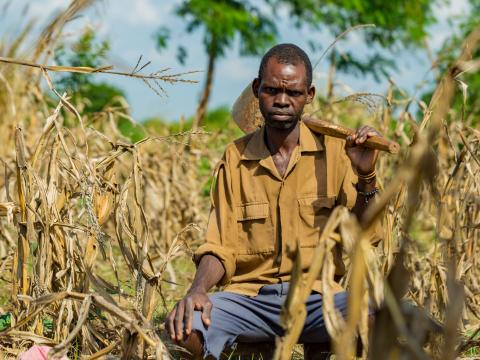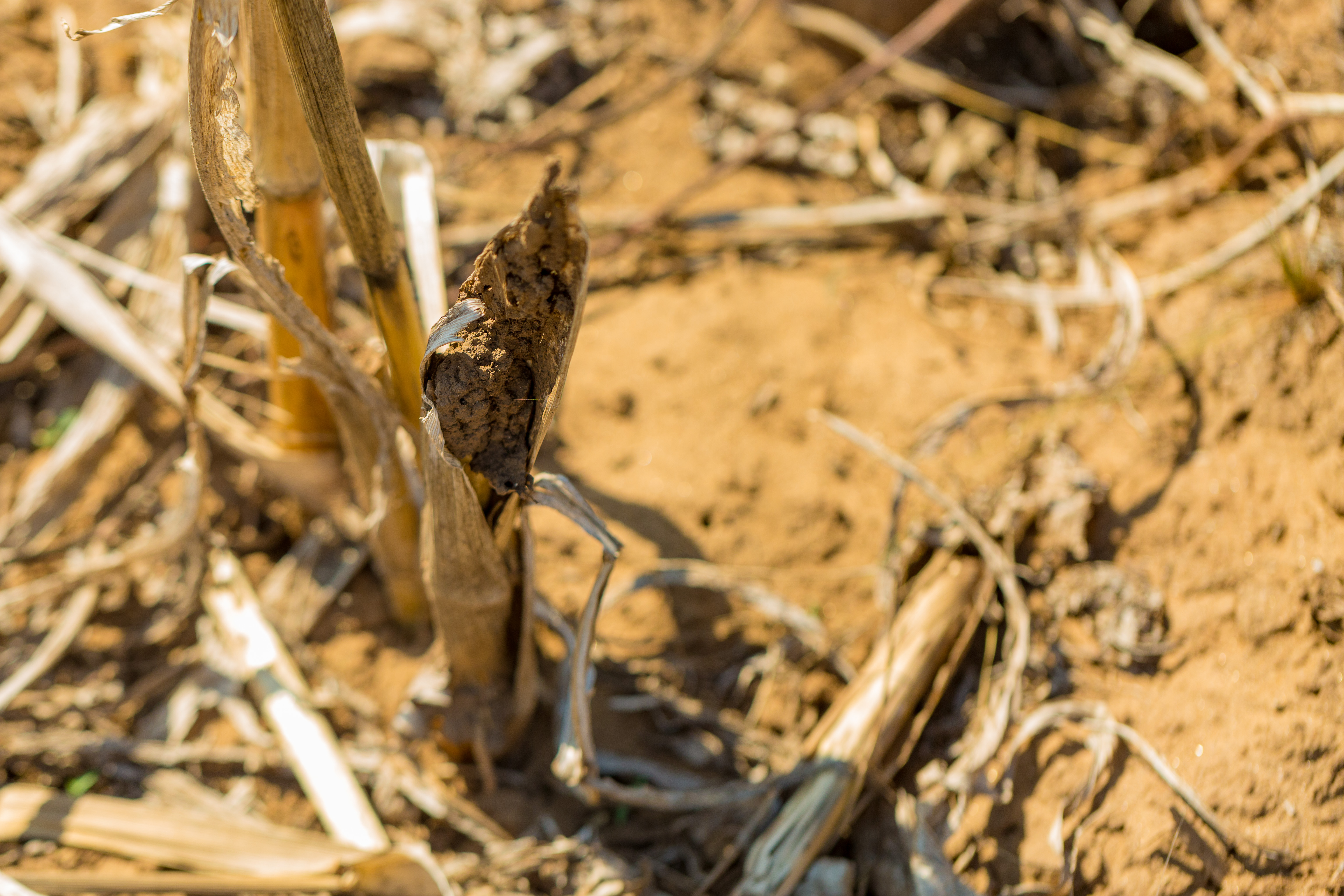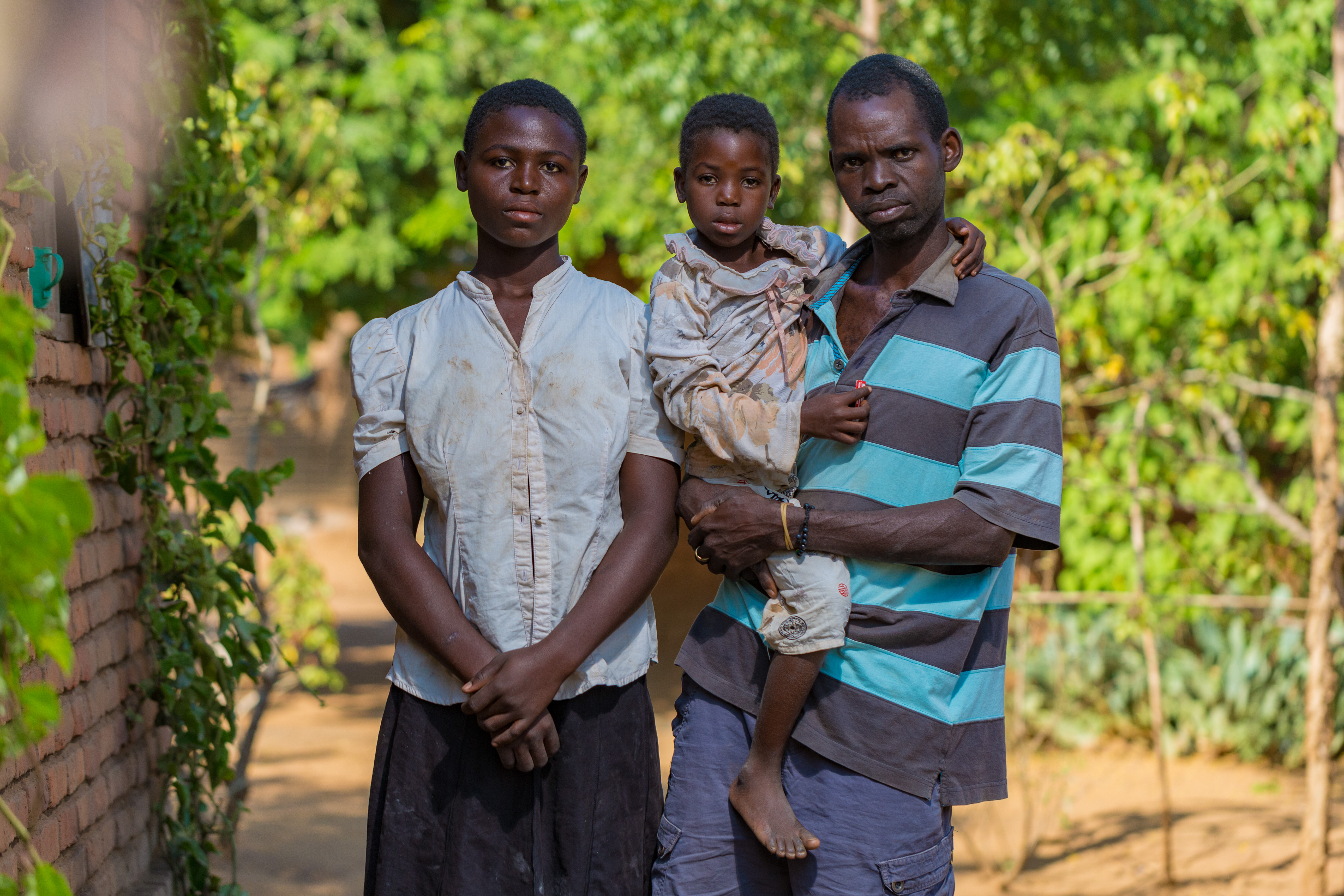The struggle against starvation as El Nino affects thousand in Chikwawa

Chifundo Makaniso is in Standard Seven at the nearest Mfera Primary School. But already, the impact of the recent severe drought which recently affected her area is already taking a toll on her life. Unable to get support from her parents—who are on the verge of starvation and relies on piecework to provide food for the family, she has started missing out on her classes.
“At first my parents were able to provide breakfast, lunch and supper but now we can stay for two or three days without a proper meal,” the teenager sitting beside her father on the doorstep of their home said. She looks downcast but still shyly forced a smile. She has a younger sibling who also go to the same school.
Family’s Struggle to Survive.
To the young Chifundo, having not only food but also well nourished is everything both to her personal and school life. But with the hunger, she is failing to focus on her lessons as her mind wanders during lessons.
“The little money my parents earn goes to buying food. It is even hard to buy us exercise books. I sometimes do piece works by fetching water and earning something. As a child, don’t understand what the teacher is saying because I’m always thinking how I will survive when I return,” she said.
“We sometimes go to sleep while hungry. You don’t have energy and you’re depressed. Even working becomes a challenge. Because food is a challenge, sometimes our parents provide sweet potatoes for a dish. If one cannot understand what the teacher is saying, then it is just as good as staying at home,” she added.
National Crisis: El Nino’s effect on Malawi
Two million farming households have been affected by the El Nino-induced dry spells and are in dire need of food assistance leading the country to declare a state of disaster in 23 out of 28 countries. Chikwawa district is one of the flood-prone areas.

According to reports The El Niño impact is exacerbating the devastating effects of the climate crisis in Malawi including from the the impacts of tropical storms and cyclones in 2022 and 2023 which all had devastating impact across the country including in the district.
Loss of Livelihood and Food security
George Makaniso, the father to Chifundo, had planted maize in early January. Like other farmers, he was astounded when the rains had stopped by the following month of February. Many of them hoped it will eventually come. But as the maize grew and reached the flowering stage the hopes had withered. All the maize plants had wilted down after it had already had cobs leaving the farmers with literary nothing to take home.
“I could not manage to get even a bag,” Makaniso whose family usually harvest ten bags of maize or so said.

“As a breadwinner, I am in a desperate situation. It is hard to find piece works because we can’t even cultivate in other people’s fields. How can we do that if everyone is facing drought? We sometimes eat just twice or once a week and children in school are hard without food. Sometimes they are missing classes . We’re worried about their future because they can’t focus on school without food. As a result of the drought, we now have double challenges; at home and school challenges for our children. We sometimes depend on sweet potatoes but even the sweet potato hasn't done well because if the valley or the lower end of this place has received too much sun, how about the uplands,” he added.
Cassava which is praised for its drought resistance has not done well. So is the sugarcane, sweet bananas, sorghum and a variety of other crops. Still, there is a grimmer of hope. Makaniso points to a pen of chicken and Krall with three hens and two piglets respectively. There is also a small structure with a banana tree and some sugarcanes. He waters the enclosure every day, a reminder of the still hot weather persisting but those small things are what brings a smile on his face.
He bought the livestock with earnings from FFA or Food for Asset project in the area by World Vision, with financial support from the World Food Program (WFP). The programme has been assisting family members but due to this year's drought, the successes that were made are not as visible because the rain didn't come for the projects to deliver. Now the issues are not about the drought but rather the land which is closer to Shire River has a lot of water.
Hope in Desperate Times
With support from World Food Programme, the communities have been involved in watershed management activities including construction of dams, eyebrow basins, trenches, and community access roads, regeneration of natural trees and enrichment of trees
Michael Isaac, technical member for programme said the eye brows have helped the community members to harvest water ostensibly assisting them in growing trees and control of the water flow. The Check Dams have also helped in soil fertility recover.